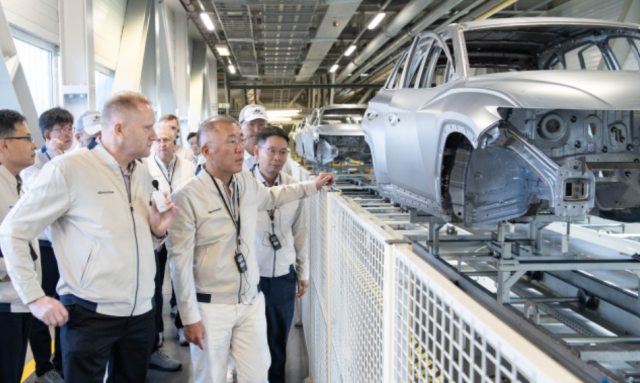
The Trump administration began enforcing a 25 percent tariff on a range of foreign-made automotive components — among them tires, engines and transmissions — effective April 3.
The decision has rattled South Korea’s export-dependent automotive sector, which counts the United States as its largest overseas market.
South Korea exported $8.22 billion in auto parts to the U.S. last year, accounting for more than a third of the industry’s total overseas shipments. Industry estimates suggest that between 60 and 70 percent of those parts are destined for South Korean automakers’ American operations, including Hyundai Motor and Kia.
Of the 691 tier-one suppliers serving the domestic auto industry, roughly 95 percent are small and medium-sized enterprises. Many of these firms are now grappling with existential challenges as the new tariffs threaten their price competitiveness in an already cutthroat market.
“The tariffs could imperil not just the export of finished vehicles, but the entire ecosystem of parts suppliers,” said Lee Ho-geun, a professor of automotive engineering at Daeduk University. “If companies attempt to absorb the additional costs, they will incur significant losses. On the other hand, passing the burden onto consumers risks eroding demand.”
South Korea’s three leading tire manufacturers — Hankook Tire & Technology, Kumho Tire, and Nexen Tire — are also facing stiff headwinds.
The United States accounted for 24 to 30 percent of their total revenues last year. Many of their tires are produced at facilities in Southeast Asia, and some shipments could now be subject to tariffs of up to 46 percent, depending on their country of origin.
In response to the tariffs, the Korea Automobile Industry Cooperative Association (KAICA) convened an emergency meeting last week, warning of potential losses in the trillions of won and urging Seoul to seek swift diplomatic engagement with Washington.
Tire makers have already begun adjusting their strategies.
Hankook is fast-tracking expansion at its Tennessee plant, aiming to produce up to 12 million tires annually by early next year. Kumho is reportedly considering shifting some U.S.-bound production to domestic facilities to mitigate the impact.
Nexen Tire, which lacks manufacturing capacity in the United States, has fulfilled its current inventory obligations but is now weighing a strategic pivot toward European and Chinese markets.
Copyright ⓒ Aju Press All rights reserved.





View more comments